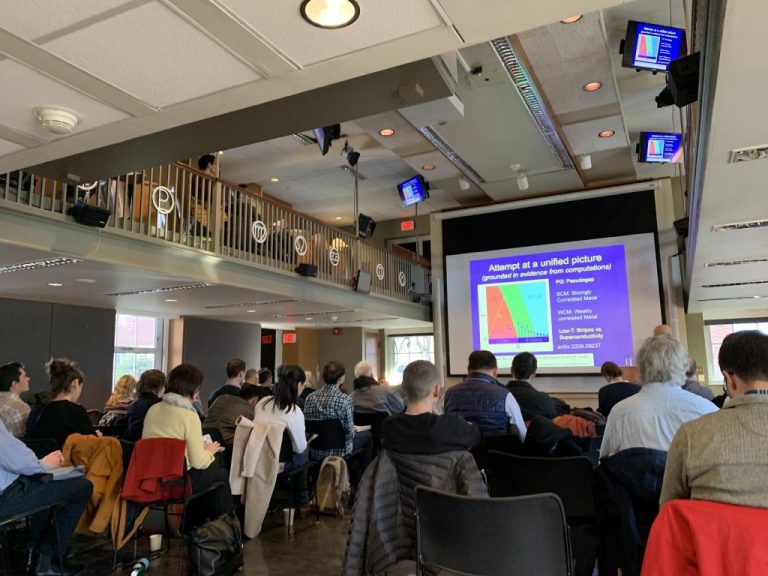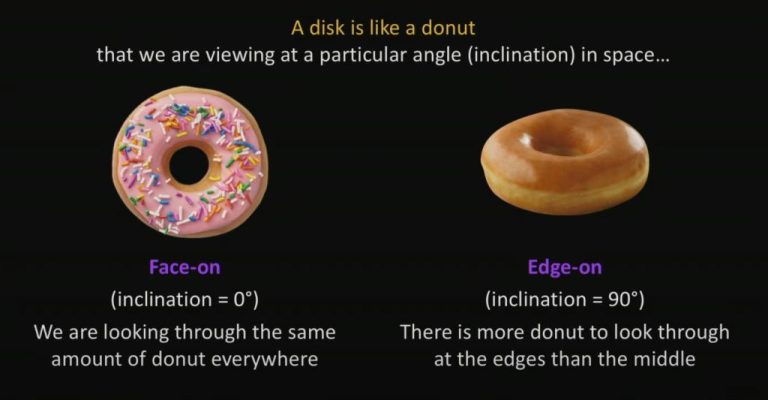Dap Hartmann advocates remaining critical of content, even when it concerns the work of colleagues. Making your own judgement is the essence of a good scientist, he believes.
(Photo: Sam Rentmeester)
After finishing my PhD, I became a postdoc at the prestigious Harvard-Smithsonian Center for Astrophysics (CfA) in Cambridge, Massachusetts. Many of the world’s best astronomers work there, and those who don’t visit regularly. Every Tuesday there is a colloquium in the Philips Auditorium, which accommodates 110 people. In addition to an interesting lecture, there is tea and cookies before the talk, creating a moment of social interaction with colleagues from other departments.
Although intended for CfA astronomers, a man with the appearance of a hobo often attended the colloquium. Nobody knew who he was. Perhaps it was an astronomer down on his luck, who lived on the street and attended the weekly colloquium while enjoying a cup of tea. He never bothered anyone, always listened attentively and took notes in a large notebook. No one asked who he was or why he was there..

The Philips Auditorium of Harvard-Smithsonian Center for Astrophysics. (Photo: Itamp)
I usually attended the colloquia, but not always. “Why weren’t you at the colloquium yesterday?” my boss once asked me. “It was about quasars and I’m not interested in quasars. Furthermore, I probably wouldn’t have understood any of it after five minutes,” I replied. He struggled with my answer because it was important to him that others could see that the people in his research group were present. I elaborated on my answer. “I also don’t go to the library once a week to spend an hour reading a random paper in The Astrophysical Journal. I read papers related to my research and papers that pique my interest. I use the same criteria for attending colloquia.”
I thought it was very mediocre at best
Looking at the list of recent CfA colloquia, I certainly would have attended the presentation How to Form a Habitable Planet by Meredith MacGregor of the University of Colorado. Not my field of expertise at all, but very intriguing. Fortunately, nowadays the CfA colloquia can be watched on YouTube. Highly recommended, even for the uninitiated. Especially enjoy Meredith’s Donut Primer at 17:48.

Screenshot from the YouTube video.
Our Millimeter-Wave Group was part of the Radio and Geoastronomy division which organised a seminar every Friday. As this fell within my field of expertise, I had no excuse to stay away. Besides, the speakers were mostly colleagues. However, the quality of those talks was substantially lower than that of the colloquia on Tuesdays. After one such a seminar, a fellow postdoc was very enthusiastic and full of praise. That surprised me, because I thought it was very mediocre at best.
I asked him, “You just spent an hour of your life listening to that presentation. What do you know now that has enriched your life that you didn’t know an hour ago?” He was quite taken aback by that question and he had no answer. But it made him think, and that was exactly my intention. Making your own judgment and not applauding because everyone else is applauding, that is the essence of a good scientist.
Dap Hartmann is Associate Professor of Innovation and Entrepreneurship at the Delft Centre for Entrepreneurship (DCE) at the Faculty of Technology, Policy and Management. In a previous life, he was an astronomer and worked at the Harvard-Smithsonian Center for Astrophysics. Together with conductor and composer Reinbert de Leeuw, he wrote a book about modern (classical) music.


![[Column] Talks](https://delta.tudelft.nl/wp-content/uploads/2023/12/DapHartmann_4623_WEB_0.jpg)
Comments are closed.